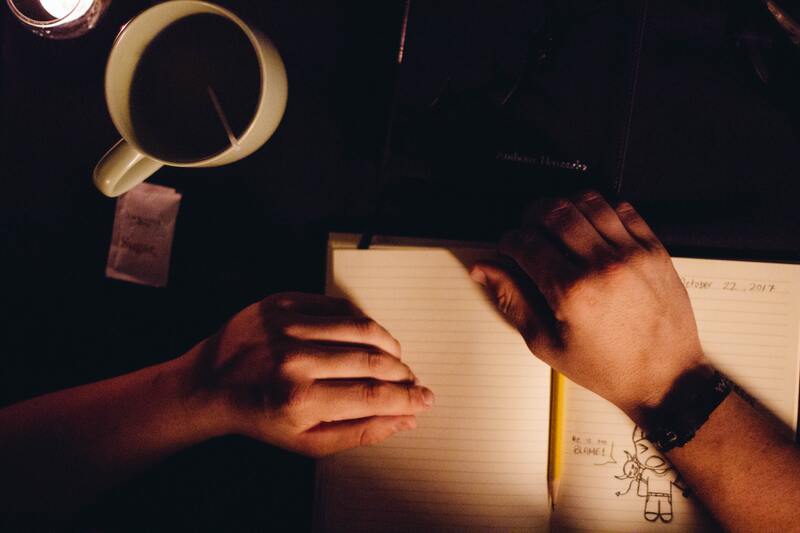Originally, diary writing was discovered as a therapeutic tool in the course of research into processing traumatic experiences as an effective method. One example of this is the 1989 earthquake in the San Francisco Bay Area, which confronted many people with loss. People wanted to tell each other about their traumatic experiences. Talking about traumatic experiences has a positive effect on those affected - they can get rid of some of the baggage and process it. But at the expense of the listeners (if they are not trained to do so). They often feel worse afterwards. The solution - writing down your own traumatic experiences.
People who keep a diary after traumatic experiences and process their experiences in writing show an improved mood and a strengthening of their immune system. But only if meaningful terms (such as "because" or "reason") and insights ("realise", "know", "understand") can be formulated (link to the article).
But writing a diary independently of experiencing trauma also has wonderful effects. It improves the feeling of self-efficacy and control in one's own life, as a study could show. If you write about what happened today and reflect on yourself and your own experiences and behaviour, you can become more and more aware of what lies within your own sphere of influence.
Writing in a diary also helps to organise, sort and clarify everything that is unclear, vague and confused in your head. Writing things down can help you to distance yourself from certain things, precisely because they have been put down on paper. Writing things down and "filing" them by putting them on paper also frees up cognitive resources. It could be shown, that this reduces intrusive thoughts about negative events.
Diary writing can take place in different ways. You can report on the day's events, deal with problems, reflect on your experiences and behaviour, and/or set a very specific focus. For example, on what went well for you that day; what you are grateful for; how you have progressed with what you have currently set yourself as a goal. You can use this to sharpen your focus. In fact, there is evidence that writing down what you are grateful for (and it doesn't matter how small these things are) has a positive effect on the serotonin system (which in turn is linked to a sense of wellbeing).
Writing in a diary therefore helps you to process traumatic events if meaningful terms and insights can be formulated. It also helps you to organise your thoughts and file them away, freeing up more cognitive resources because intrusive thoughts can be reduced. Ultimately, it also helps you to feel more self-efficacious and to feel more in control of your life. The gratitude diary can also contribute to a greater sense of well-being.
What are your experiences with keeping a diary? Can this article serve as a reminder for you to maybe start (again)? Feel free to share your opinion in the comments.

